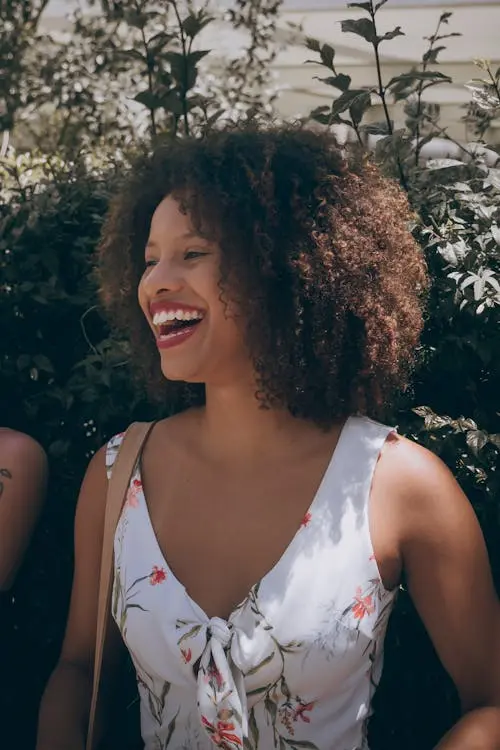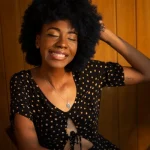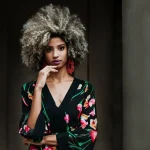The afro is more than just a hairstyle; it is a powerful symbol of cultural identity, pride, and resistance. For many within the Black community, wearing an afro is a bold statement of self-acceptance and defiance against Eurocentric beauty standards. In this article, we explore the rich history of the afro, its cultural significance, and how it continues to empower and inspire.
The Rich History of the Afro
The afro hairstyle has deep roots in African culture, where elaborate hairstyles have long been a form of self-expression and social status. However, it wasn’t until the 1960s and 1970s, during the Civil Rights and Black Power movements, that the afro gained prominence in the United States. Dr. Kellie Jones, a cultural historian and author, explains, “The afro hairstyle has a rich history, representing pride, resistance, and self-acceptance within the Black community” Library of Illinois.
During this time, the afro became a symbol of Black pride and a rejection of the oppressive societal norms that dictated straight hair as the standard of beauty. It was a visual declaration of identity and solidarity, challenging the status quo and embracing natural beauty.
The Afro as a Symbol of Resistance
Wearing an afro can be a powerful act of self-expression and resistance. Social psychologist Dr. Janet Taylor emphasizes, “Sporting an afro can be a powerful act of self-expression and defiance against Eurocentric beauty standards” (Interview with Psychology Today Magazine). For many, choosing to wear their hair in its natural state is a way of resisting cultural assimilation and celebrating their heritage.
Embracing My Afro
Growing up, I struggled with my natural hair. In a society that often glorified straight hair, I felt pressured to conform. It wasn’t until I went to college that I started to embrace my natural curls. The day I decided to cut off my relaxed ends and wear my afro was liberating. I felt a newfound sense of pride and confidence. My afro became more than just a hairstyle; it was a part of my identity.
The Afro in Popular Culture
The afro has been embraced by many celebrities and public figures as a statement of Black beauty. Janelle Monáe, known for her signature afro, says, “My afro is a part of who I am. It’s a statement of pride in my heritage and my blackness” (Interview with Allure Magazine). Celebrities like Solange, Erykah Badu, and Tracee Ellis Ross have also championed the afro, showcasing its versatility and beauty.
The Afro and Black Beauty Standards
The afro challenges traditional beauty standards that often prioritize straight hair. Nia Long, a hairstylist and founder of Natural Hair Queens salon, asserts, “The afro is a symbol of Black beauty in its natural state. It challenges the idea that straight hair is the only standard of beauty” (Interview with Teen Vogue Magazine). By embracing their natural hair, many Black women and men are redefining what beauty means and asserting that their natural texture is beautiful.
The Impact of Role Models
Seeing public figures and celebrities proudly wearing their afros had a profound impact on me. It showed me that beauty comes in many forms and that my natural hair is something to be celebrated, not hidden. I remember watching Tracee Ellis Ross on TV and feeling inspired by her confidence and the way she embraced her curls. It gave me the courage to embrace my own natural hair journey.
The Natural Hair Movement
The natural hair movement has played a significant role in the resurgence of the afro. This movement encourages Black individuals to embrace their natural hair texture and reject harmful hair practices. Melissa Butler, founder of The Lip Bar cosmetic line, explains, “The afro is more than just a hairstyle; it’s a movement for self-love and cultural identity within the Black community” (Interview with Forbes Magazine).
The Economic and Social Impact
The natural hair movement has not only empowered individuals but also had a significant economic impact. The demand for natural hair care products has surged, leading to the growth of Black-owned businesses that cater to the unique needs of natural hair. According to the Journal of Consumer Culture, the natural hair movement has reshaped Black consumer culture, creating a market that celebrates and supports natural hair.
Starting a Natural Hair Routine
When I first started my natural hair journey, finding the right products was a challenge. However, discovering Black-owned brands that catered to my hair type was a game-changer. These products not only worked wonders for my hair but also supported businesses within my community. It felt good to invest in products that were created by people who understood my hair needs.
The Afro in Media Representation
Media representation of afro hair has evolved over the years. While negative stereotypes and limited portrayals once dominated, there has been a positive shift towards celebrating afro hair in its natural state. The Journal of Women’s Studies highlights how media representation of afro hair can influence societal perceptions of Black beauty. Positive portrayals in films, TV shows, and advertisements are crucial in normalizing and celebrating afro hair.
Empowerment Through Embracing the Afro
Embracing the afro is a form of empowerment. It sends a message to the world that you are confident and comfortable in your own skin. Chimamanda Ngozi Adichie, a renowned author, and speaker, states, “Embracing your afro is a form of empowerment. It shows the world that you are confident and comfortable in your own skin” (TED Talk). For many, the afro is a source of strength and a reminder of their heritage and resilience.
The Future of the Afro
The afro continues to be a powerful symbol of Black identity and pride. As more people embrace their natural hair, the future looks promising for the afro and the natural hair movement. Education and representation are key to ensuring that future generations understand the importance of the afro and its cultural significance.
Teaching the Next Generation
As a parent, I am committed to teaching my children the beauty of their natural hair. I want them to grow up knowing that their curls are beautiful and that they should never feel pressured to conform to societal standards. Seeing their eyes light up when they see characters with afros in their favorite books and shows fills me with hope for the future.
Conclusion
The afro is a celebration of natural Black hair, rich in history and cultural significance. It is a symbol of pride, resistance, and self-acceptance. Embracing the afro is a powerful act of defiance against oppressive beauty standards and a statement of Black beauty in its natural state. As we continue to celebrate and embrace the afro, we honor the resilience and strength of the Black community.




